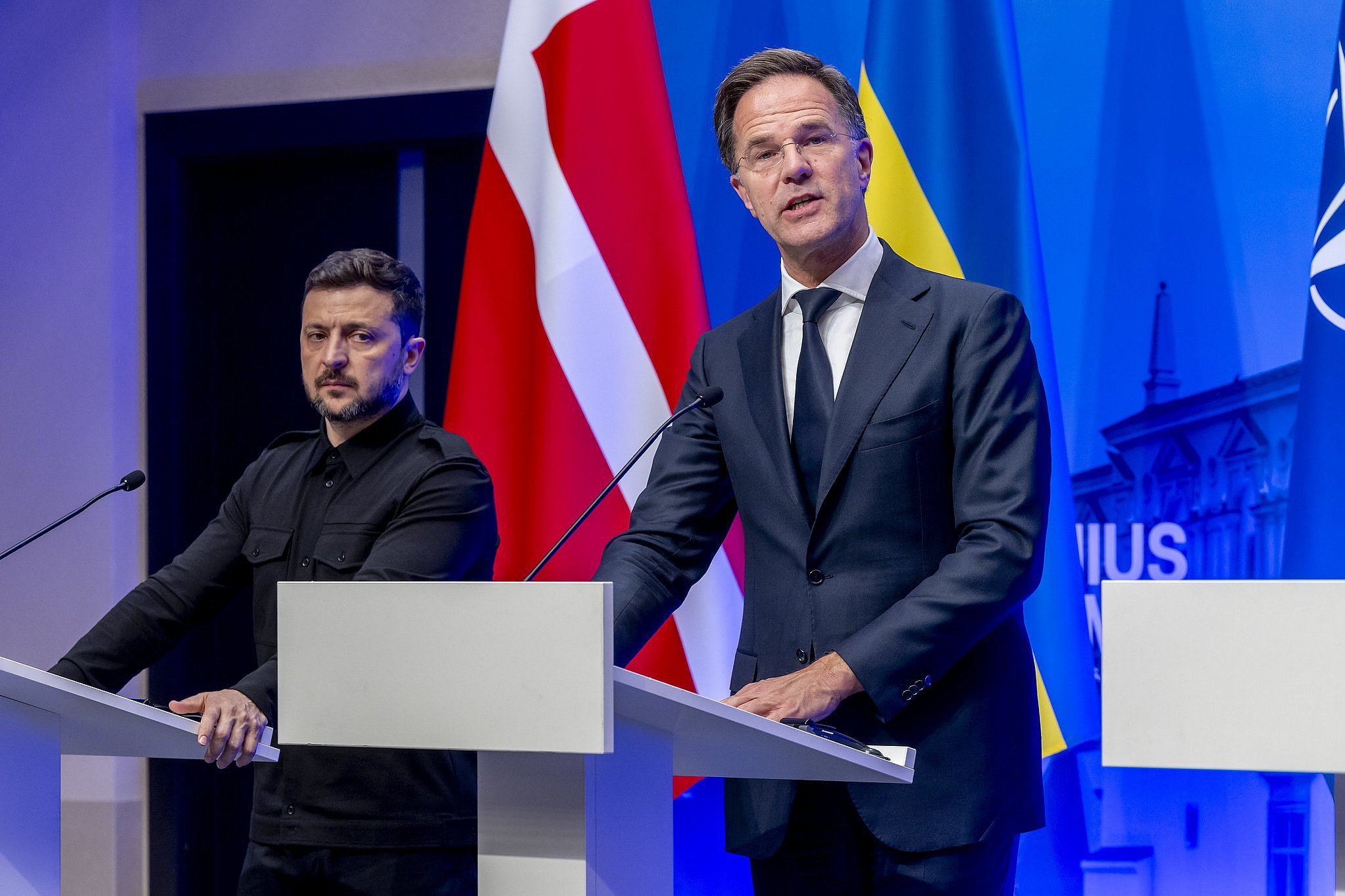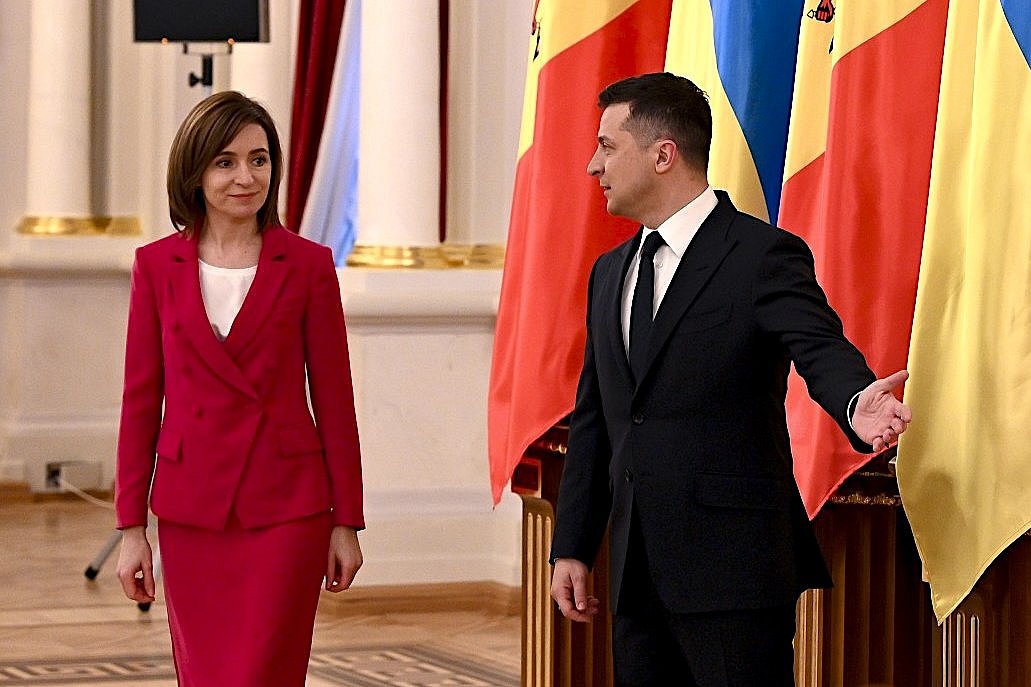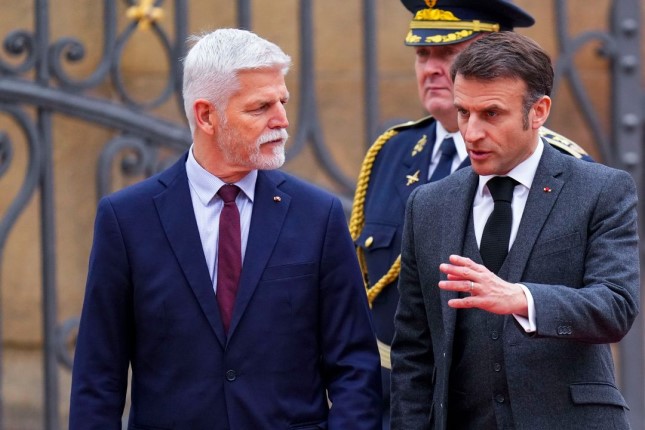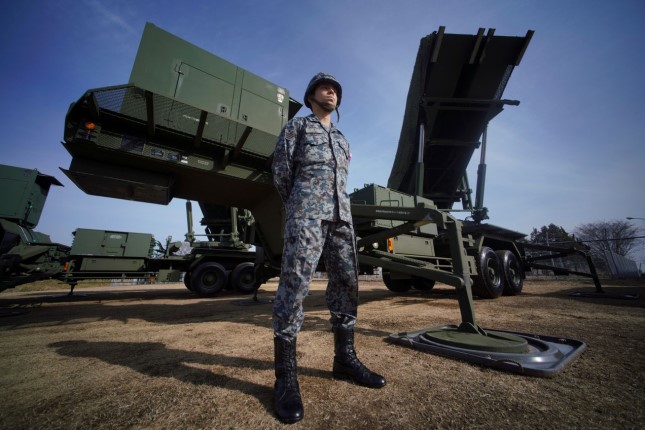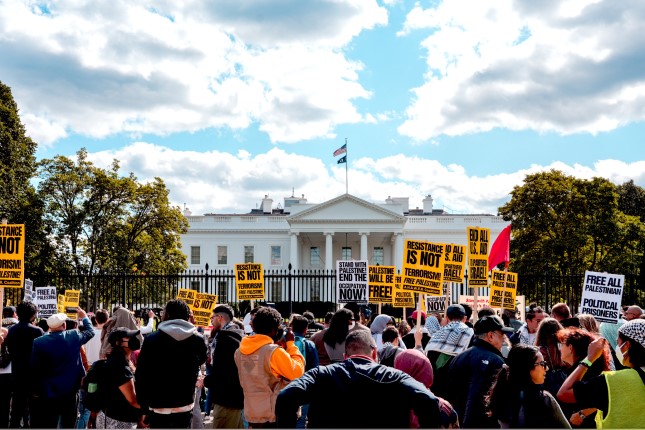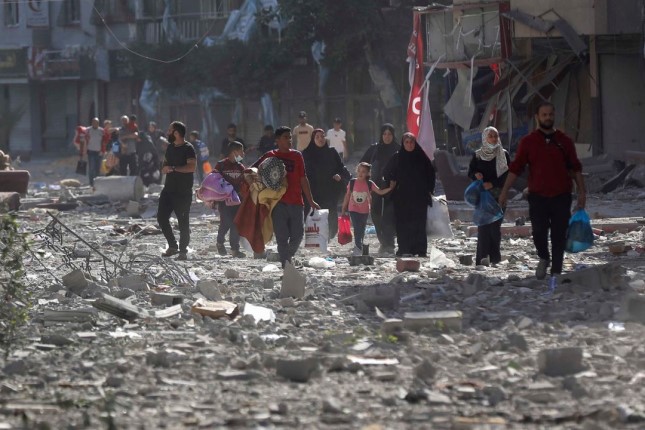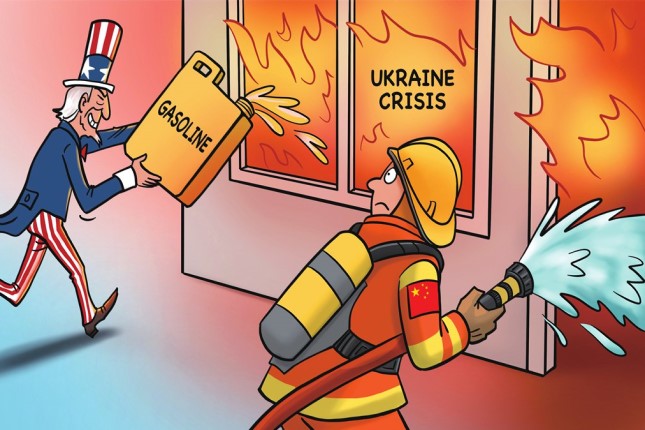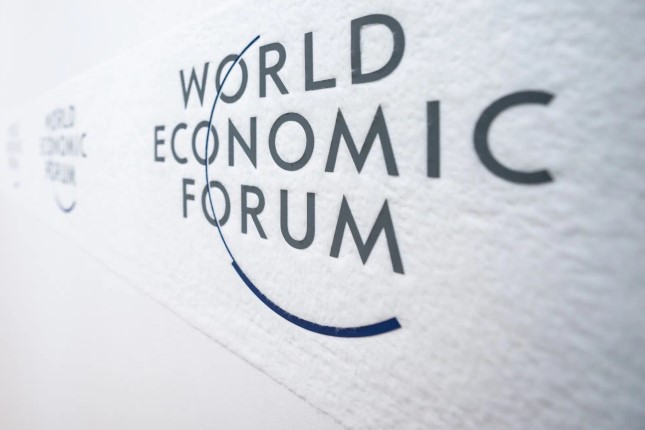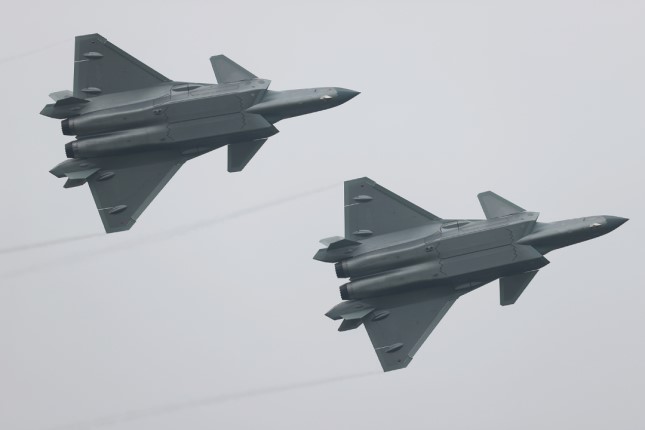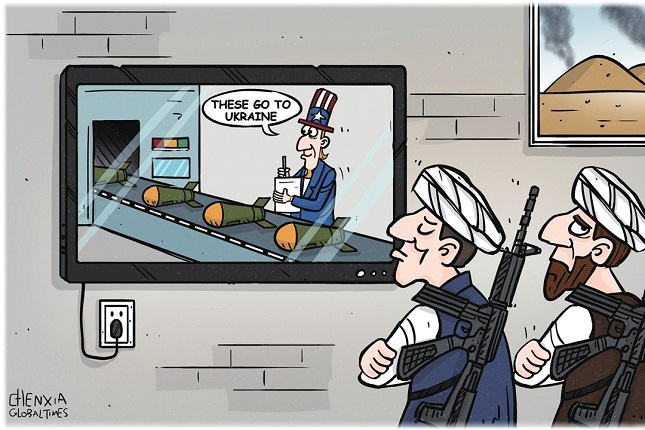Declassified British files shed further light on the controversial question as to what assurances were made to Russia by U.K. officials about the expansion of NATO into eastern Europe.
The documents show then Prime Minister John Major telling Russian Foreign Minister Yevgeny Primakov in February 1997 that “if he were Russian he too would be concerned by the possibility that NATO might move up to Russia’s borders.”
But Major added that “NATO has no intention of doing this” and was “not seeking to box in Russia.”
Briefing notes drawn up by No. 10 Downing Street [the prime minister’s office] for Major’s phone call with Primakov stated: “We are not seeking to encircle Russia with NATO members.”
The following month, Major wrote to Russian President Boris Yeltsin saying: “I am well aware of Russian concern that NATO enlargement may mean that NATO forces will effectively move nearer your own borders. I well understand the fears that may be aroused in Russia.”
However, he added:
“But let me assure you that such fears are quite without foundation.”
The reason was that
“NATO has no intention of stationing large conventional forces or nuclear weapons on the territory of new members.”
Major also reassured Yeltsin that NATO would only deploy “a modest amount of NATO infrastructure… such as storage facilities and command and control arrangements.”
The declassified files released to the National Archives covering 1996-97 are full of references by U.K. officials to Russian “concern,” “negative attitudes,” “fears,” “hostility” and “resentment” about NATO enlargement.
At the time, NATO’s expansion was being considered for only a small number of central European countries, not former states in the old Soviet Union, such as Ukraine — which was an even more sensitive issue to Moscow.
An August 1996 paper drawn up by Downing Street clearly noted Russia’s policy of “not allowing Ukraine or the Baltic States to join NATO.”
‘Enlarge NATO anyway’
U.K. officials believed the Russians reluctantly “tacitly accept that enlargement will go ahead” — subject to their opposition to nuclear and conventional force deployments — “but cannot say so publicly.”
In December 1996, Russian Prime Minister Viktor Chernomyrdin told Major in private: “Russia could not stop NATO enlarging, but this would create a fragile situation which could explode.”
Major assured him: “We did not wish to do anything to unsettle Russia.”
The files show that Britain was intent on expanding NATO to include “some” central/eastern European countries.
A policy paper drawn up in September 1996 said U.K. objectives were “to enlarge NATO to the East” and “secure Russian acquiescence in enlargement … But if Russian acquiescence is not possible, for NATO to enlarge anyway.”
The paper was drawn up by Foreign Office official Matthew Rycroft, who in 2003 would be former Prime Minister Tony Blair’s private secretary during the war in Iraq.
‘Full Account of Russia’s Place’
In the month Blair succeeded Major as prime minister, May 1997, Britain’s ambassador to Russia, Andrew Wood, cabled London saying: “NATO enlargement [is] a painful issue with domestic implications.”
He added: “The Russians are virtually at one in regarding the coming enlargement of NATO as a humiliating defeat, and in supposing that the West either consciously or unconsciously intends it to be seen as such.”
However, Yeltsin also conveyed, in a phone call with Blair the same month, that he understood that “there was no turning back” on enlargement. But he again insisted that nuclear weapons should not be sited in new NATO members and that there should be “no permanent deployment of conventional forces.”
A British prime minister again offered assurances to Moscow. A briefing for Blair’s meeting with Yeltsin in May 1997 stated on the subject of NATO enlargement: “We will not allow Russia’s legitimate security interests to be damaged in this process.”
It added that “an enlarged NATO will mean more security in Central Europe. This is in Russian as well as NATO interests.”
Blair told Yeltsin “he was aware of the view Russia took on NATO enlargement” and that “arrangements for the future had to take full account of Russia’s place and weight in Europe.”
Later that year, in October, Yeltsin told Blair again in a phone call that “he continued to oppose enlargement of NATO, which was a mistake. Europe should not be divided.”
At the time discussions were taking place about a comprehensive security system for Europe, replacing the old East-West divide and giving Russia a place in that system. It was clear, however, that NATO, led by the U.S., privileged expanding the organisation over bringing in Russia into a new European security architecture.
At NATO’s summit in Madrid in July 1997, the Czech Republic, Hungary and Poland were invited to begin accession talks, and they joined NATO in 1999. A further wave of accession occurred in 2004 when Bulgaria, Estonia, Latvia, Lithuania, Romania, Slovakia and Slovenia all joined NATO.
By 2017, NATO had established a “forward presence” policy in eastern Europe, deploying battalion-size battlegroups in Estonia, Latvia, Lithuania and Poland. NATO claims this was needed in response to Russia’s “aggressive actions against its neighbours,” notably its [supposed] 2014 invasion of Crimea.
Opposing Ukraine
British files from 2001 show that Defence Minister Igor Sergeyev warned NATO that any further enlargement would be “a major political error” requiring Moscow to take “appropriate steps.”
By 2002, when Britain was supporting a new wave of central/eastern European states becoming members of NATO, Blair’s government was explicitly opposed to Ukraine joining the organisation, the files show.
“We do not support Ukraine’s request to join MAP,” the Foreign Office noted in 2002, referring to NATO’s Membership Action Plan, which provided advice to countries aspiring to join NATO.
Though Kyiv was pushing strongly for an enhanced relationship with NATO, Ukraine’s bid was “premature” in the British view since the country was “far from meeting criteria expected of aspirants.”
The U.K.’s chief diplomat at NATO, Emyr Jones Parry, noted that Ukraine was “on notice that deepening relations with NATO will require more democratic and other reforms.”
But also critical for British officials was the impact on relations with Russia. U.K. strategy was “to steer Ukraine away from any suggestion of membership except in the very long term” given the “serious impact on NATO relations with Russia.”
“Ukraine membership of MAP would greatly complicate our handling of the new Nato-Russia relationship and would raise serious Russian concerns about Nato’s strategy,” reads a 2002 briefing note for the prime minister.
Barrier to Russia
At the time, the Labour government was seeking a “transformed relationship between Russia and the Alliance,” a process which was described as “truly historic.” Indeed Blair was courting Vladimir Putin after MI6 had helped him into power in 2000.
British officials were impressed with Moscow’s declared support for the U.S. following the 9/11 attacks in September 2001 and sought a new strategic relationship.
Though British officials opposed Ukraine joining NATO at this time, some spotted the country’s geopolitical importance.
Roger Liddle, Blair’s special adviser, wrote that Ukraine played a key role as a supply route for Russian gas. But also Ukraine could act “as a formidable barrier to any resurgence of Russian Imperialism to the West.”
At its Bucharest summit in 2008, NATO pledged that both Ukraine and Georgia would eventually become members.
Source: Consortium News.
